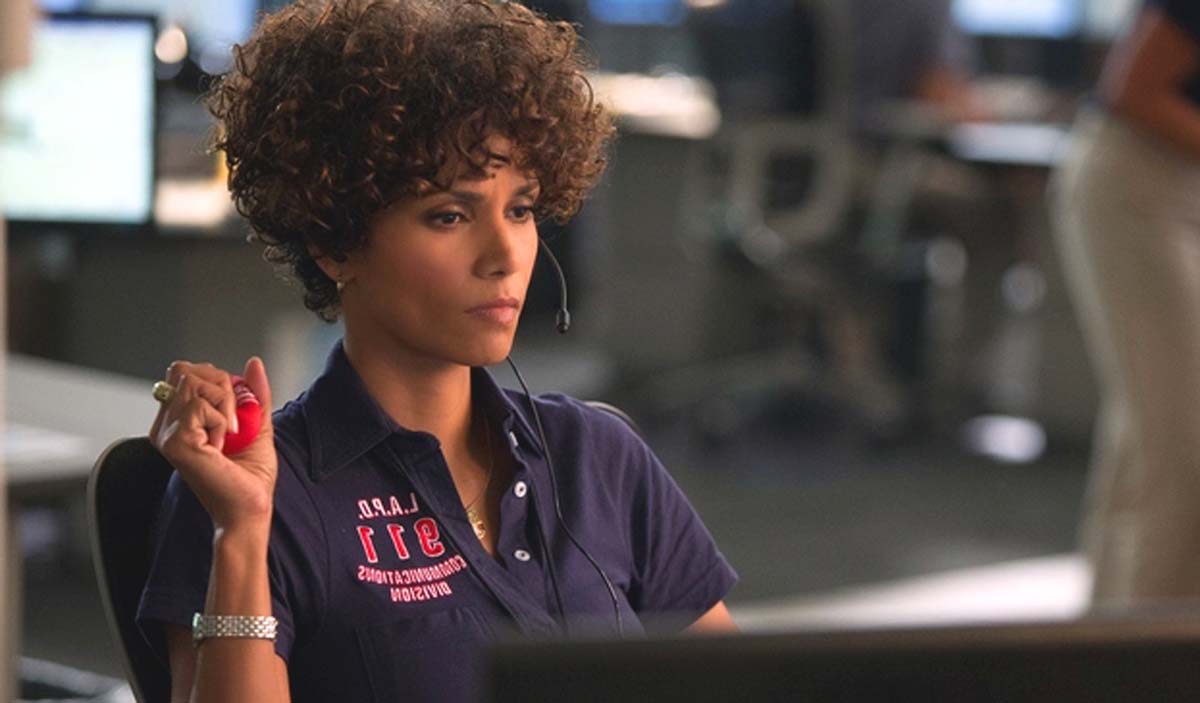By all rights, The Call—starring Halle Berry as a frantically overpermed 911 operator trying to save the life of a kidnapped teen—shouldn’t have been this good. Featuring a committed performance from its star and shrewdly effective direction from indie filmmaker Brad Anderson (The Machinist, Session 9), trading up to the world of budget Hollywood thrillers, the genre picture is a fast paced and reductively brutal serial killer picture that gives us two smart women, a scary villain and 94 minutes of sustained tension. It’s not perfect, but has a high creep factor and is so smoothly carpentered that when the formula tropes kick in late in the picture, you just sit back and go along for the ride. And while the film’s trailer may be selling exploitation, what its director and star deliver is far more nuanced.
Oscar-winner Berry, whose career has had more downs than ups in recent years, is back at the top of her game as Jordan Turner, a seasoned Los Angeles 911 operator whose momentary judgment lapse leads to the death of a teenaged girl at the hands of a home invader. It’s a remarkably intense opening sequence that sets the tone for the rest of the film, including an up-close look at how 911 operators work in a high-tech “hive” as Jordan calls it, filled with “busy worker bees” taking calls on everything from basting turkeys to animal removal to spousal abuse, using their brains and compassion on the fly each time the phone rings.
Six months after the incident, a still-traumatized Jordan has taken a training job where she schools new operator recruits in not “making promises.” Still reeling from the earlier tragedy, she’s distanced herself from the phones and from her supportive boyfriend, a beat cop well played by Morris Chestnut.
Enter Abigail Breslin (Little Miss Sunshine, all grown up) as Casey Welson, a comely young blonde abducted from the local mall and promptly stuffed into a trunk. She phones 911 on an untraceable Trac phone; Jordan intervenes, allowing Anderson to set-up a good thirty plus minutes of real-time suspense, orchestrated simultaneously in that trunk and in the call center, whose members display crack teamwork, led by Roma Maffia as the practical shift boss concerned about Jordan’s personal investment, occupational hazard numero uno. The film gets maximum mileage cutting back and forth between locations and actresses.
After guiding Casey through a series of botched attempts to get free from the speeding car—including kicking out the tail lights and pouring gallons of paint down the freeway—an escalating series of good Samaritan interventions go awry, most notably when a suspicious limo driver, played by Michael Imperioli, finds himself on the very wrong end of a good deed, setting up one of the movie’s best scares.
Jordan eventually realizes the culprit is the same killer responsible for the death of her caller months before, sending her over the edge and into “personal” territory, as the film’s one-sheet promises, setting up a lockstep, narrative deus ex machina of genre tropes, including people putting themselves in very wrong places, in the dark, in harm’s way where they have no business being. And that’s a lot of fun when you have a craftsman with such directorial finesse as Anderson at the wheel. It also helps if you have a small taste for Grand Guignol, because The Call doesn’t pull punches in its final reel of a scantily clad teen in extreme danger. Yet as played by Breslin, she’s smart, keeps her wits about her and is never a victim; rather, a plucky foil to a madman, smarter than her captor.
It’s clear early that the killer, played with tics of physical mania in a deliciously off-kilter performance by Canadian actor Michael Eklund, has multiples screws loose. But it’s only when intrepid Jordan, way out of her element and safety zone of the hive, ventures alone (naturally) to his remote cabin (naturally) at night (naturally) and discovers a pile of old photographs (naturally) that his twisted pathology comes into focus. Suffice to say screenwriter Richard D’Ovidio has done the formula proud with a neat psychopathology that is part The Silence of the Lambs, part Maniac (William Lustig, 1980) and all teetering on the overt titillation of Breslin stripped to a bra and forced to undergo some very queasy rituals. We’ve seen them before, but that doesn’t make them any less frightening.
And while The Call reminds us of other films and asks us to employ a textbook definition of suspension of disbelief during the film’s climax—a cell phone actually falls into a subterranean shaft at just the right moment and a key line of dialogue becomes an unlikely catch phrase in the rushed final scene—director Anderson maintains control, effectively shooting in widescreen, pile-driving the pace and editing the horror sequences with disorienting freeze-frames while employing an effective score by John Debney, hypnotically pulsating beneath the depravity. The killer’s lair, which is straight out of a few other pictures and no less creepy for it, is a feat of art direction and atmosphere. And the soundtrack makes surprising use of both Culture Club and Taco’s 1982 ditty Puttin’ on the Ritz.
In a way, The Call plays like a poor man’s, latter day Lambs, albeit without that Oscar-winner’s rich characterizations, themes and substance, here scaled way down to brass balls tacks. The basic plot outline employed in dozens of serial killer pictures from The Cell to Kiss the Girls to Manhunter—that of a flawed but resourceful do-gooder seeking redemption by rescuing an intended victim from the clutches of a maniac—still has the ability to work us over. Jordan Turner may be no Clarice Starling, to be sure, but in Berry’s hands she’s caring and likable.
The Call turns our screws by putting people we like in jeopardy and then delaying their safety. It gives us what we want, and that’s enough.
3 stars.



